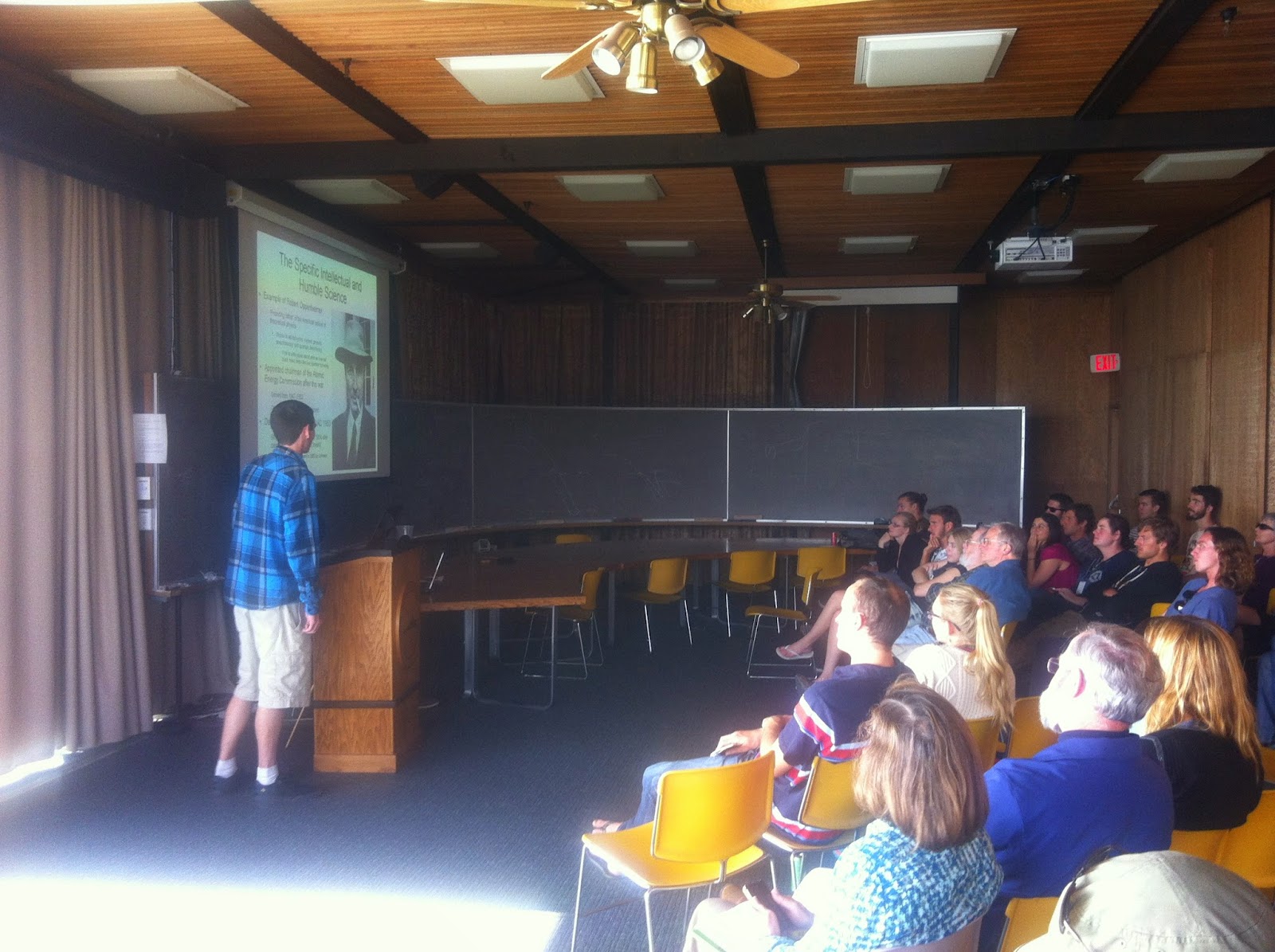 That topic was "environmental justice," and each of the speakers addressed it from their unique perspective. David Carruthers provided a good foundation for the session by explaining what environmental justice is, and then by providing a number of case studies of environmental justice on the Mexican-American border. What I found remarkable about his talk is that his case studies represented victories over big corporations by local people, something that I don't dare to hope for sometimes.
That topic was "environmental justice," and each of the speakers addressed it from their unique perspective. David Carruthers provided a good foundation for the session by explaining what environmental justice is, and then by providing a number of case studies of environmental justice on the Mexican-American border. What I found remarkable about his talk is that his case studies represented victories over big corporations by local people, something that I don't dare to hope for sometimes.Yazmin Ochoa González then further zoomed in on the place where we were. She proposed three scenarios for a more environmentally responsible TJ. TJ quickly needs to protect its natural resources, not only for the purpose of ecological conservation, but also to protect itself from environmental disasters like flooding. The explosion of the city's urban residents has not been kind to green areas, and Ochoa provided remedies for this problem.
 Heber Huizar Contreras went on in a similar vein, presenting an investigation of the access Tijuana residents have to parks, the quality of those parks, and whether this access represents a class division (e.g. the rich having more and better access than the disadvantaged parts of society). He concluded that access in Tijuana is very poor, but it is poor for everyone regardless of class (in the course of the discussion after, Kyle Haines suggested that this might be due to the fact that TJ only recently became a large city. If you'd go to older megacities, he argued you'd find the class division as to access to green areas would exist). In the course of his talk, Huizar questioned established environmental notions, for example the United Nations' definition of a "park" as a "flat space," an model not difficult to realize in more hilly regions like TJ but also leading to misperception of how many "parks" are actually there.
Heber Huizar Contreras went on in a similar vein, presenting an investigation of the access Tijuana residents have to parks, the quality of those parks, and whether this access represents a class division (e.g. the rich having more and better access than the disadvantaged parts of society). He concluded that access in Tijuana is very poor, but it is poor for everyone regardless of class (in the course of the discussion after, Kyle Haines suggested that this might be due to the fact that TJ only recently became a large city. If you'd go to older megacities, he argued you'd find the class division as to access to green areas would exist). In the course of his talk, Huizar questioned established environmental notions, for example the United Nations' definition of a "park" as a "flat space," an model not difficult to realize in more hilly regions like TJ but also leading to misperception of how many "parks" are actually there.The discussion, as usual, was lively, with a lot of the debate focusing on environmental justice movements in Mexico, and the role of governments (Mexican, American, United Nations) in protecting our ecological heritage. After the discussion was over, many of us enjoyed a wonderful reception at COLEF, followed by a tasty Mexican dinner in downtown Tijuana. All in all, it was a fitting conclusion to a good year.
A video of the whole meeting is available here.




